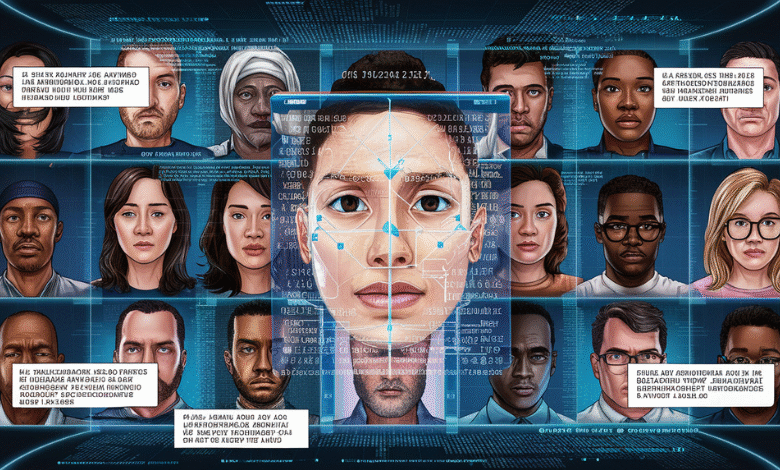Facwe: Deciphering the Modern Digital Lexicon

In the rapidly evolving landscape of digital communication, new terms and phrases emerge with astonishing speed, often leaving those outside specific online communities puzzled about their meaning and origin. Facwe is one such term—a linguistic puzzle that embodies the creative and often cryptic nature of internet language. Its ambiguity is its most defining feature, suggesting it could be an acronym, a brand name, a piece of community slang, or even a typographical error that gained traction.
Understanding a term like Facwe requires more than a simple dictionary definition; it demands an exploration of digital culture, community-specific communication, and the ways in which language adapts to new environments. This article delves into the potential meanings of Facwe, the contexts in which it might be used, and the broader implications of such terms in our increasingly connected world.
1. Deconstructing Facwe: Acronym, Brand, or Slang?
The first step in understanding Facwe is to break down its structure and consider the most plausible categories it might fall into. As a five-letter word with a mix of consonants and vowels, it closely resembles an acronym, where each letter stands for a word in a longer phrase. In a technical or corporate context, it could represent something like “Framework for Adaptive Content and Web Engagement” or “Federated Access Control for Workflow Environments,” suggesting a specialized tool or protocol designed for digital collaboration.
Alternatively, Facwe might function as a brand name for a startup, a product, or a creative project, chosen for its uniqueness and ease of trademarking. In this case, its meaning would be built through marketing and user experience rather than literal interpretation. Another possibility is that Facwe is a piece of internet slang or an inside joke within a specific online community, such as a gaming group, a social media platform, or a forum, where it serves as shorthand for a more complex idea or inside joke. The term’s flexibility allows it to adapt to various contexts, making it a fascinating subject for linguistic analysis.
2. The Role of Community in Defining Digital Language
If Facwe has emerged from the organic discourse of a digital community, its meaning is likely shaped by the shared experiences and norms of that group. Online spaces, particularly those on platforms like Discord, Reddit, or TikTok, are breeding grounds for linguistic innovation, where users playfully manipulate language to create slang, abbreviations, and inside jokes that foster a sense of belonging.
Facwe could be a product of this creative process—perhaps a misspelling or a playful variation of an existing word (like “face” or “facade”) that took on a new life within a specific context. In gaming communities, for instance, it might describe a particular strategy or glitch, while in creative circles, it could refer to a style of art or design. The term’s significance would be deeply tied to the community that uses it, acting as a marker of identity and shared understanding. This phenomenon highlights how digital communities not only communicate but also co-create language, reinforcing their cultural bonds through unique linguistic expressions.
3. Contextual Clues: Where and How Facwe Is Used

The meaning of Facwe is inherently tied to the context in which it appears. Without contextual clues, it remains an enigma, but with them, its purpose becomes clearer. For example, if Facwe is used in a tech blog or a software repository, it likely has a technical meaning, such as an acronym for a development framework or a coding protocol. If it appears in social media bios or promotional content, it might be a brand name for a lifestyle product, a clothing line, or a digital service.
In more casual settings, like meme captions or forum comments, it could be slang for a specific action or emotion, such as a humorous way to describe someone’s expression or reaction. The surrounding words, the platform where it is used, and the profile of the person or group using it all provide vital hints for decoding its meaning. This underscores a key aspect of digital communication: interpretation relies heavily on context, and the same term can carry vastly different connotations depending on where and how it is employed.
4. The Evolution of Language in the Digital Age
Terms like Facwe exemplify the dynamic and ever-changing nature of language in the digital era. The internet has accelerated linguistic evolution, allowing new words and phrases to spread globally in a matter of days or even hours. This rapid change is driven by the need for efficient communication, the desire for group identity, and the playful creativity of online communities.
Facwe, whether it is a lasting term or a fleeting one, is a testament to this process. It shows how language can be repurposed, abbreviated, and reinvented to suit new contexts and technologies. This evolution also challenges traditional notions of language authority, as digital communities often bypass formal institutions like dictionaries or educational systems to create and popularize their own terms. Understanding this shift is crucial for navigating modern communication, as it requires adaptability, curiosity, and a willingness to engage with unfamiliar linguistic landscapes.
5. How to Decipher and Engage with Digital Terms Like Facwe
For those encountering Facwe or similar terms, knowing how to approach them is key to unlocking their meaning. The first step is to observe the context carefully—note where the term appears, who is using it, and what other words or phrases accompany it. A simple web search can sometimes yield results, but it is often more effective to search within specific platforms or communities where the term might be more widely recognized.
Engaging directly with the community by asking questions or participating in discussions can also provide insights, as members are often willing to explain inside jokes or slang to newcomers. Additionally, keeping an open mind and embracing the playful, experimental nature of digital language can make the process of deciphering terms like Facwe more enjoyable and rewarding. This proactive approach not only helps in understanding specific terms but also fosters deeper connections with digital cultures and the people who shape them.
Conclusion: The Beauty of Linguistic Mystery
Facwe, in all its ambiguity, represents the creativity and complexity of digital communication. It reminds us that language is not static but a living, evolving entity shaped by the communities that use it. While the term itself may remain elusive without context, the journey to understand it offers a glimpse into the innovative ways people connect and express themselves online.
Rather than seeing such terms as obstacles, we can view them as invitations to explore new cultures, learn new modes of expression, and appreciate the endless adaptability of human language. In a world where digital and physical realities increasingly intertwine, embracing this linguistic diversity is not just useful—it is essential for meaningful engagement in the modern era.




